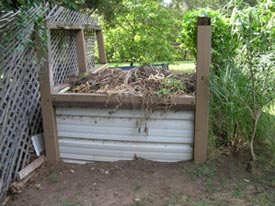
Composting is the ultimate recycling practice.
There is a haze of green confusion. What does "green" mean? Which practices are green, which are not? Can you trust everyone and everything that claims to be green?
“Green” signals a love and respect for the natural environment. Gardeners, farmers included, are the original "greenies." For the sake of clarity and to stress the inextricable bond between gardening and greening, consider some of the environmental definitions of "green":
But there are many gradations of green. Some seek to associate with the spirit of being green simply by meeting one or two of the definitions. For example, a factory that dumps toxic chemicals into a lake used for drinking water and recreation might claim to be green because it has a recycling program for plastic bottles.
As the original prognosticators of the green message, gardeners must be vigilant. Ask questions and support those who meet your standards for being green. Are the policies and procedures current and efficient? Are the practices and inputs used to make the goods sustainable, or do they exhaust and degrade limited resources? Are the finished products and raw materials local? Are toxins used to grow or manufacture the goods? Becoming an educated gardener, citizen, and consumer takes effort, but it's necessary if we are to protect the definition and spirit of "green."
NGA's Environmental Lawn and Garden Survey